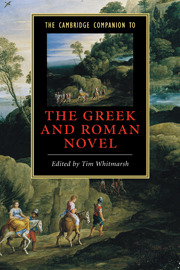11 - Genre
from Part III - Form
Published online by Cambridge University Press: 28 June 2008
Summary
'What is time?', worried St Augustine. 'I know what it is, provided no-one asks me.' Augustine brilliantly captures the paradoxical truth that 'time' is an essential everyday term which everyone uses comfortably, but which becomes increasingly hard to understand the more one thinks about it - and Augustine thought very hard about time. For literary criticism, 'genre' is a similarly necessary but baffling term. It is an essential element of literary history and of our responses to literature: one of the first engagements with any text by a reader is the recognition of genre, and it would be hard to imagine a literary history that did not depend on genre as an organising category. Yet what is at stake in the term 'genre' or, more specifically, 'the genre of the novel', is less easy to determine. In what ways does calling a text a 'novel', or excluding a text from the 'genre of the novel', matter? How does it affect what writers write and how readers read? Is genre a question of formal qualities, that is, a set of stylistic elements, which any text must have in order to be classed as a novel? Or is there more at issue - politics, sociology, the expectations of readers? The first section of this chapter investigates the issues underlying the term 'genre' and, more specifically, 'the genre of the novel'; the second section looks at how 'genre' has played a crucial role in the critical history of the ancient novel; the third section looks at some specific texts to see how the use of the term 'genre' can open and close avenues of appreciation of ancient fiction. The simple question which underlies these discussions is this: what difference does it make to call a particular work a 'novel'?
- Type
- Chapter
- Information
- The Cambridge Companion to the Greek and Roman Novel , pp. 185 - 200Publisher: Cambridge University PressPrint publication year: 2008
- 15
- Cited by

